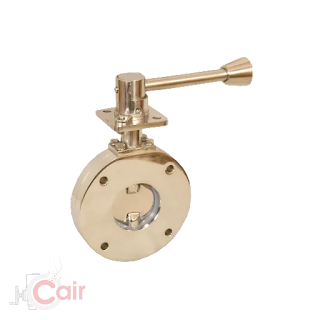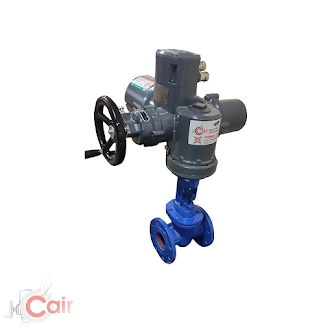Comparing UPVC Valves with Traditional Materials: Pros and Cons
Choosing the right valve material is crucial for the efficient functioning of various systems. In this comparison, we explore the merits of UPVC (Unplasticized Polyvinyl Chloride) valves against traditional options.
UPVC Valve Advantages:
Corrosion Resistance: UPVC valves are highly resistant to corrosion, making them ideal for diverse industrial applications.
Chemical Stability: The material exhibits excellent chemical stability, ensuring longevity in harsh environments.
Lightweight: UPVC valves are significantly lighter than traditional options, facilitating easier installation and maintenance.
Traditional Valve Materials:
Metal Options: Traditional valves often utilize metals like brass, bronze, or stainless steel, which can be susceptible to corrosion.
Weight Concerns: Metal valves are generally heavier, posing challenges during installation and transportation.
When considering valve materials, the versatile and durable nature of UPVC stands out, making the choice clear for those prioritizing efficiency and longevity in fluid management systems. An UPVC valve, with its numerous benefits, is a smart choice for various industrial applications.
Pros of UPVC Valves: Lightweight and Corrosion-Resistant Solutions
Discover the advantages of UPVC valves, where lightweight design and corrosion resistance converge for optimal performance:
Lightweight Construction: UPVC valves are renowned for their lightweight nature, making them easy to handle, transport, and install. This characteristic simplifies the overall installation process and reduces the need for heavy-duty equipment.
Corrosion Resistance: UPVC valves exhibit exceptional resistance to corrosion, ensuring longevity and durability in diverse environmental conditions. This resistance makes them suitable for applications involving exposure to chemicals, water, and varying temperatures without compromising their structural integrity.
Low Maintenance: Due to their corrosion-resistant properties, UPVC valves require minimal maintenance over their lifespan, resulting in cost savings and increased operational efficiency.
Chemical Compatibility: UPVC valves are compatible with a wide range of chemicals, making them suitable for use in industries where exposure to corrosive substances is common.
Invest in UPVC valves for a lightweight, corrosion-resistant solution that guarantees efficiency and longevity in diverse applications. Whether for industrial or residential use, UPVC valves are a reliable choice.
Cons of UPVC Valves: Limitations and Considerations
While UPVC valves offer various advantages, it's essential to consider their limitations before incorporating them into your systems.
Temperature Sensitivity: UPVC valves may not be suitable for extreme temperature conditions, as they can experience thermal degradation, affecting their performance.
Chemical Compatibility: While resistant to many chemicals, UPVC valves may not be suitable for handling certain aggressive chemicals, limiting their applicability in specific industries.
Mechanical Strength: UPVC valves may have lower mechanical strength compared to metal valves, making them vulnerable to higher pressure applications.
UV Sensitivity: Exposure to prolonged sunlight can lead to UV degradation of UPVC, impacting its structural integrity over time.
Limited Pressure Ratings: UPVC valves may have limitations in handling high-pressure situations, restricting their use in certain industrial settings.
Considering these factors, it's crucial to evaluate the specific requirements of your application before opting for UPVC valves to ensure optimal performance and longevity.
Traditional Valve Materials: A Brief Overview of Common Options
When it comes to selecting valves for various industrial, commercial, or residential applications, the choice of material is crucial for ensuring optimal performance and longevity. Here's a concise overview of some traditional valve materials:
Brass: Widely used for its excellent corrosion resistance and durability, particularly in plumbing and water systems.
Stainless Steel: Known for its high strength, resistance to corrosion, and suitability for harsh environments, making it ideal for chemical and petrochemical industries.
Cast Iron: Offers good strength and wear resistance, commonly used in larger valves for water and wastewater applications.
Bronze: Combines corrosion resistance with high strength, making it suitable for marine and seawater applications.
PVC (Polyvinyl Chloride): Provides excellent corrosion resistance and affordability, commonly used in low-pressure applications.
In addition to these materials, modern advancements have introduced materials like UPVC (unplasticized polyvinyl chloride), which offers enhanced chemical resistance and durability, ideal for applications such as chemical processing and water treatment.
Strength and Durability: UPVC vs. Traditional Materials in Valve Construction
Strength and durability are critical factors in valve construction, influencing performance and longevity. When comparing UPVC (Unplasticized Polyvinyl Chloride) to traditional materials, noteworthy distinctions emerge:
UPVC Resilience: UPVC valves exhibit exceptional resilience to corrosion and chemicals, ensuring prolonged functionality even in harsh environments.
Lightweight Advantage: UPVC's lightweight nature facilitates easier installation and reduces stress on the valve system, enhancing overall efficiency.
Longevity: Traditional materials like metal may succumb to corrosion over time, whereas UPVC valves maintain their structural integrity, contributing to a longer lifespan.
Cost-Effectiveness: UPVC valves often offer a cost-effective alternative without compromising strength, making them an economical choice for various applications.
In valve construction, the use of UPVC ensures a balance between strength and durability, proving to be a reliable option for industries seeking resilient and long-lasting solutions.
Chemical Resistance: Evaluating UPVC and Traditional Valve Performance
In industrial applications, the choice between UPVC (Unplasticized Polyvinyl Chloride) valves and traditional valve materials plays a crucial role in ensuring chemical resistance and operational durability. Understanding the nuances of their performance is essential for selecting the right valve for specific environments.
Material Composition: UPVC valves boost a unique composition of rigid PVC, offering exceptional chemical resistance against corrosive substances.
Versatility: UPVC valves are versatile, suitable for a wide range of acids, alkalis, and corrosive chemicals, making them ideal for diverse industrial settings.
Durability: Traditional valve materials may exhibit vulnerability to certain chemicals, leading to degradation and reduced lifespan.
Cost-Effectiveness: UPVC valves often provide a cost-effective solution due to their longevity and resistance to chemical wear, minimizing maintenance expenses.
When evaluating valve performance, especially in chemically aggressive environments, the resilience and chemical resistance of UPVC valves make them a compelling choice for optimal operational efficiency and longevity.



Comments
Post a Comment